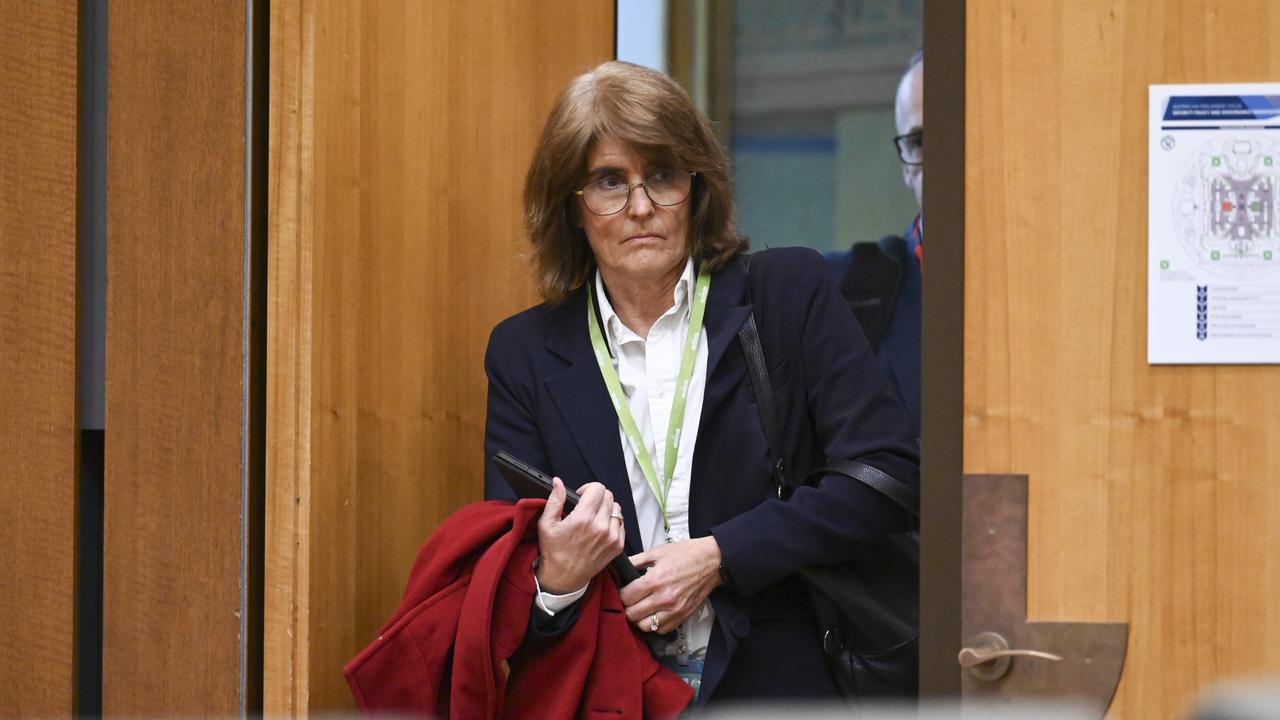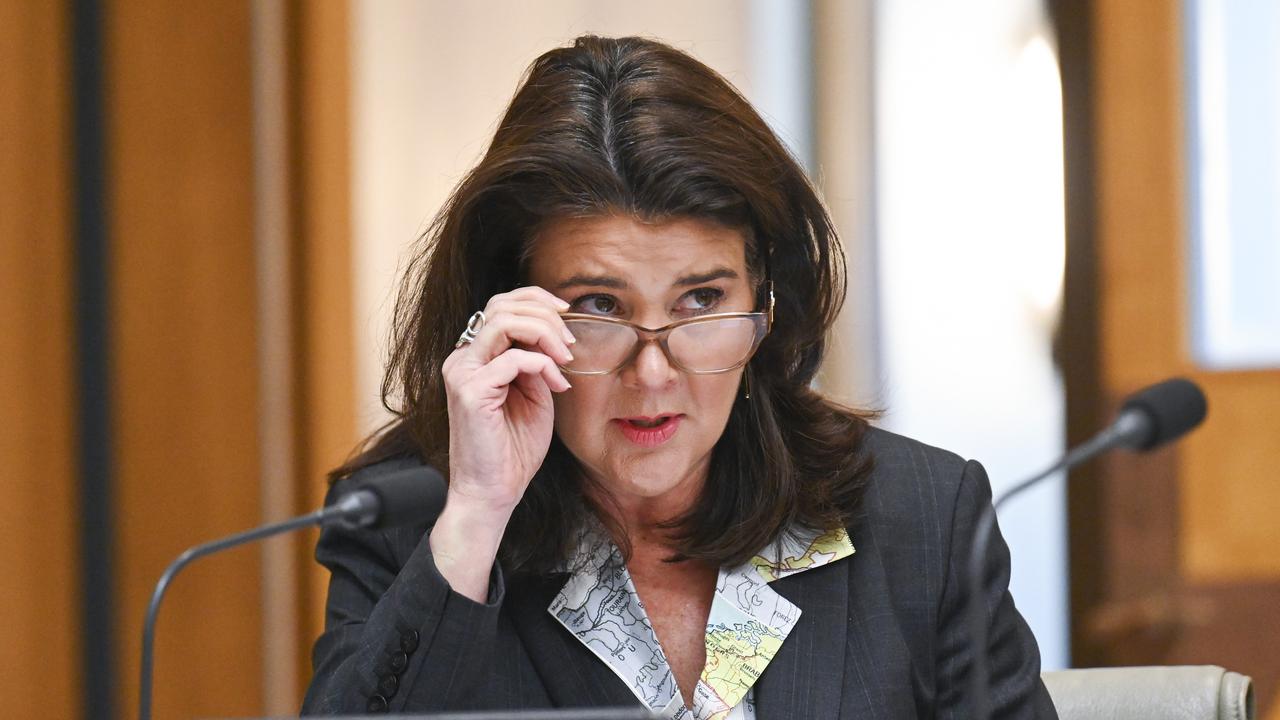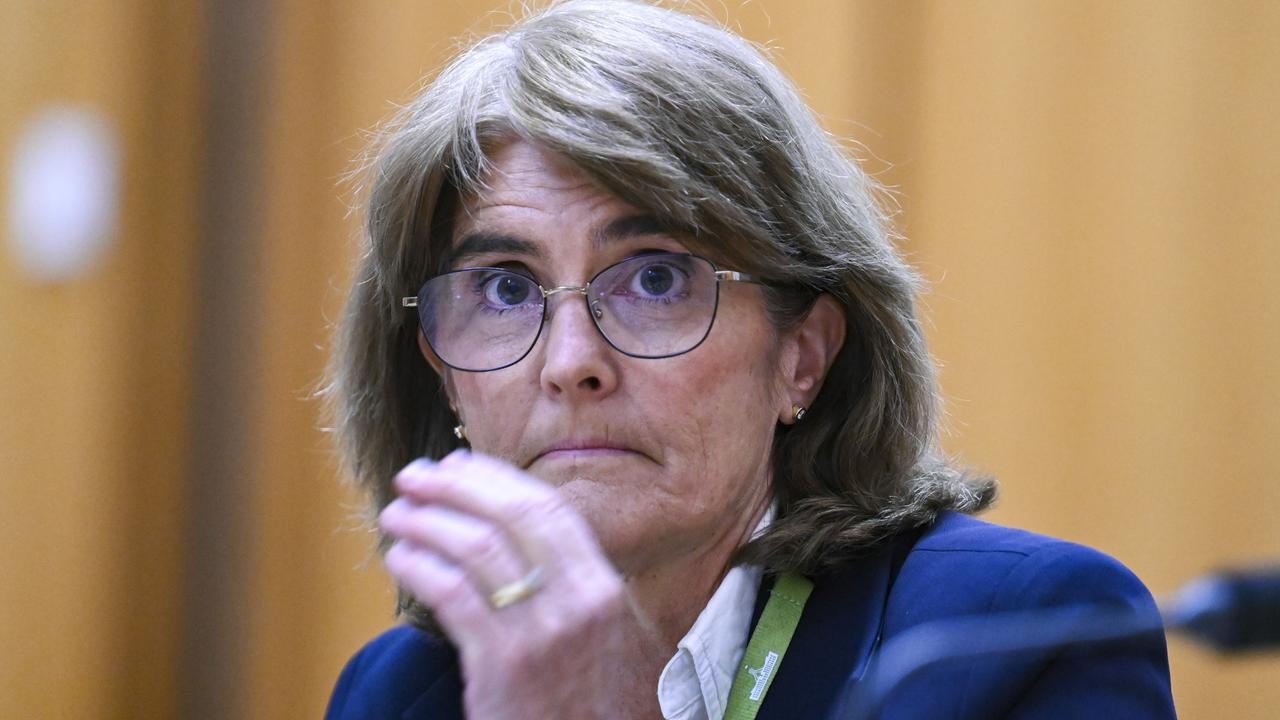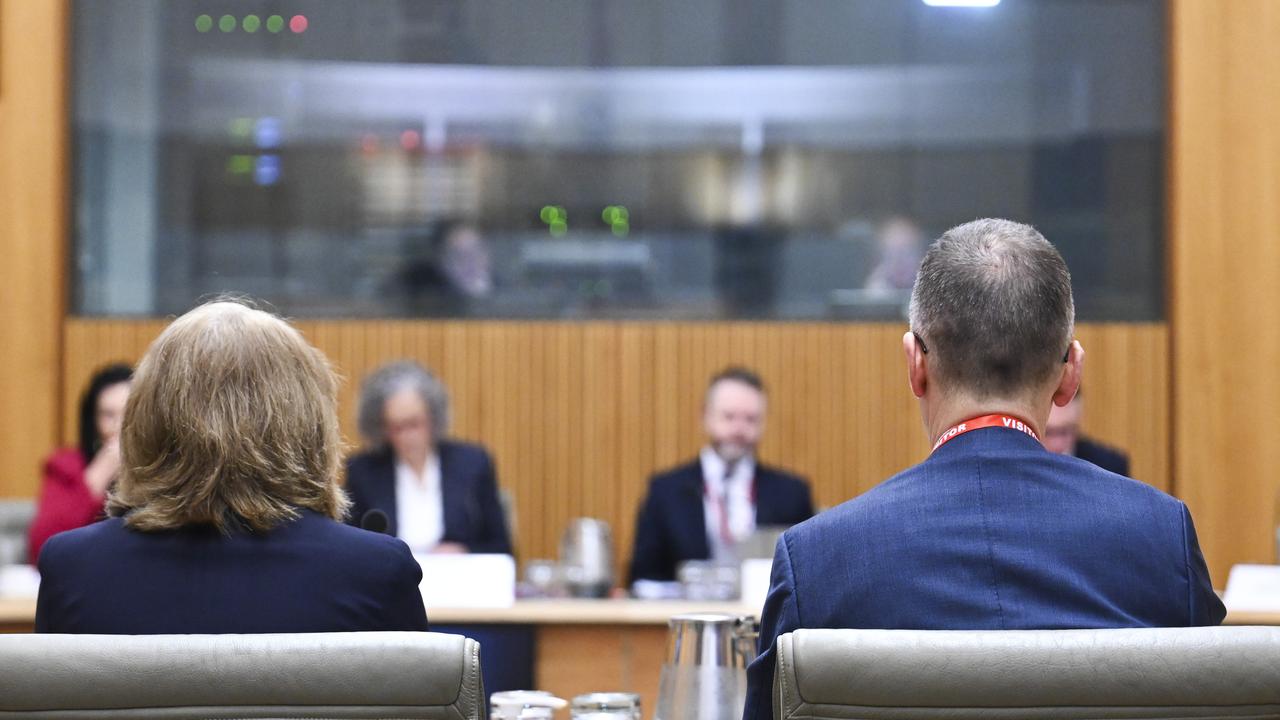March GDP numbers to be ‘quite low’, RBA governor Michele Bullock says
RBA governor Michele Bullock said the bank was watching one key figure in deciding if interest rates would increase again.
A rebound in inflation or stickier than anticipated price pressures could force the RBA to hike interest rates again, Reserve Bank governor Michele Bullock has told a senate estimates hearing.
“If we think we’re on the narrow path, we can stay basically, pretty much where we are: not ruling anything in, ruling anything out,” she said.
“But if it turns out, for example, that inflation starts to go up again or it’s much stickier than we think we’re not getting it down, then we won’t hesitate to move and raise interest rates again.”
However, if growth was lower than anticipated, Ms Bullock said the RBA would move to cut interest rates.
“If it turns out that the economy is much weaker than expected, and that puts more downward pressure on inflation, then we’ll be looking to ease,” she said.

Economic growth to be “quite low” over start of 2024
Ms Bullock told the hearing she expects the March quarter national accounts figures to show growth over the first three months of 2024 was “quite low”.
Economists expect the figures will show Australia’s economy expanded by an anaemic 0.2 per cent in the first quarter of 2024, a result that would bring annual growth to just 1.2 per cent – it’s weakest result outside the coronavirus pandemic since the 2000 dot.com bust.
Asked by Liberal senator Jane Hume if the economy was experiencing a per capita recession – that is population growth outstripping economy growth – Ms Bullock said the concept was not useful as recessions referred to “losses of jobs and human difficulties”.
“I just think that the word per capita recession just gets bandied around in a way that isn’t very helpful,” she said.
“Our sense at the moment is that the economy is weak, and it’s certainly showing up in consumption.”

“Complex” budget questions not helpful, Bullock says
Ms Bullock dodged questioning from Senator Hume over whether Treasurer Jim Chalmers’ May budget was expansionary or contractionary, arguing that answer was not simple.
“That’s a very complex question to answer,” governor Bullock said.
“The reason it’s not simple is it’s not the only thing that is impacting whether or not we’re [in] an expansionary or contractionary phase.”
Domestic and international conditions would impact Australia’s inflation path, not just the federal budget, Ms Bullock added.
“I don’t think it’s helpful to think about the budget and say it’s expansionary or contractionary without thinking about what else is happening in the economy,” she said.
Treasury secretary Steven Kennedy refused to answer a similar question from Senator Hume during Monday’s estimates hearing.
RBA will “look through” energy rebates
Ms Bullock has knocked back suggestions that the host of federal and state energy rebates will not make a meaningful difference to underlying inflation, and therefore won’t undermine the RBA’s efforts to tame inflation.
Treasurer Jim Chalmers unveiled in the May budget that every household would receive a temporary $300 energy rebate, which Treasury forecasts will lop 0.5 percentage points off measured headline inflation.

State governments in Queensland and Western Australia have unveiled similar measures.
“We try to look through things that are one-off and are going to be reversed,” she told Nationals Senator Matt Canavan.
“But in terms of the underlying pulse of inflation … we don’t think it’s going to have an impact on that.”
Economists were quick to raise concerns that the savings generated by the rebate would be spent elsewhere, further fuelling inflationary pressures, and complicating the RBA’s inflation fighting efforts.
“I think the quantum seems small enough that I don’t think they really have much of a second round impact on demand,” she said.
“When you think of that $300, are people going to go out and spend up big on that? No, I don’t think so.”
RBA won’t rule out pre-election rate hike
Under questioning from Liberal senator Dean Smith, Ms Bullock said the RBA board would not hesitate to hike interest rates again if the economic situation demanded it.
Asked to clarify if this could include during an election campaign, she responded: “I’m not speculating on any campaign periods, but the board will do what they think they need to do on inflation.”

“The board will be driven by the data and the data will tell us if we need to move,” she said.
The last time the Reserve Bank board lifted the cash rate in an election campaign was during the 2007 election when incumbent prime minister John Howard faced off against Kevin Rudd. Weeks later Mr Howard lost.
Average mortgage rates to rise another 20 basis points: Kent
The effect of the RBA’s run of 13 rate hikes since May 2022 is yet to fully flow through to all households borrowers, RBA assistant governor Christopher Kent said.
He said a small group of mortgagors still had not rolled off their ultra-cheap fixed rate loans onto much higher variable rates.
“People have been able to manage those changes, more or less. That the fixed rate mortgages rolling off doesn’t now look much different from a variable rate mortgage, in terms of their ability to make payments,” Dr Kent said.
“Most of that will finish this year, and that may add another 20 basis points or so to the average outstanding mortgage.”
Heightened competition between the banks to win home loan customers had also softened the blow of rate hikes on household borrowers, Dr Kent added.
“The other thing that’s happened just very quickly is banks have actually been competing a bit more vigorously for good quality borrowers,” he said.
“Those who are able to either change banks or negotiate with their banks have been getting better deals than they might otherwise have gotten … that’s why only about 80 per cent of the increase in the cash rate is passed through.”
Read related topics:Reserve Bank



